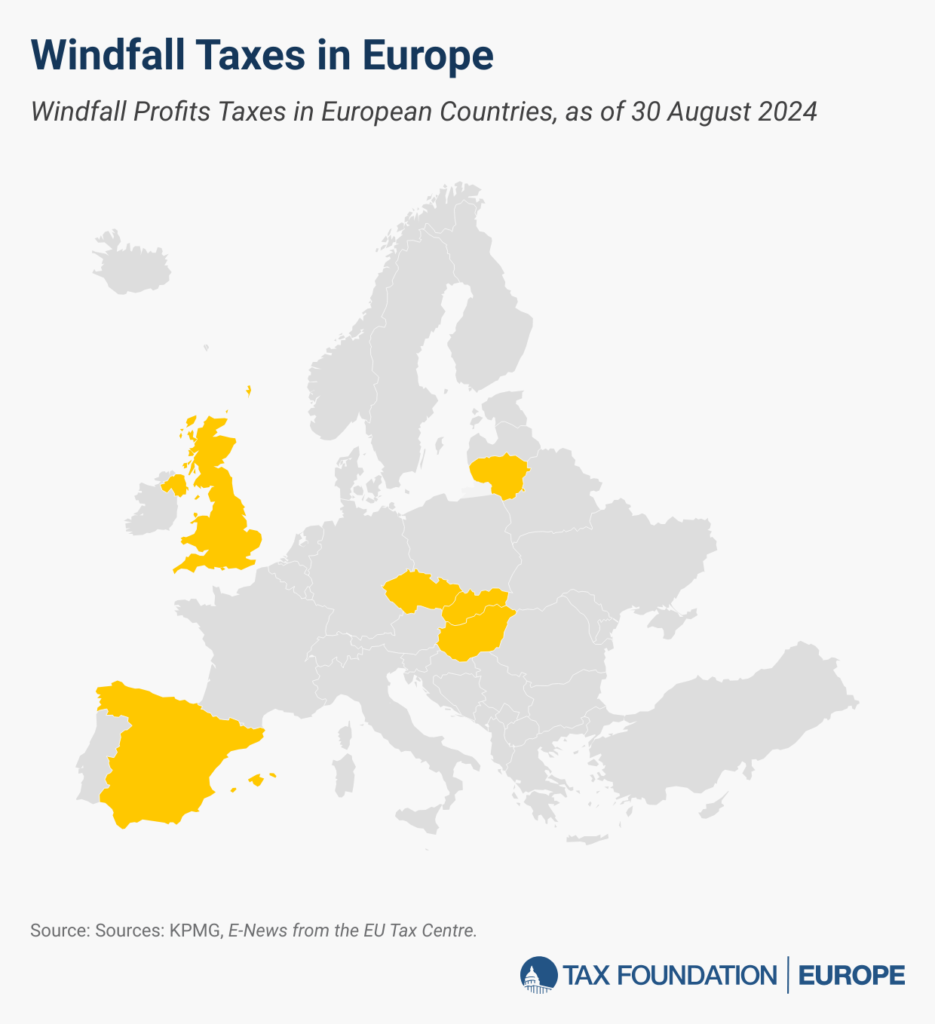Despite a decline in energy prices from their peak, several European countries continue to utilize windfall profits taxes—a one-time tax imposed on a company or industry when economic conditions lead to substantial, unexpected profits—to finance relief initiatives for consumers.
Early Recommendations and Implementation
As early as March 2022, the European Commission advised Member States to temporarily implement windfall profits taxes on all energy providers in its REPowerEU communication. The Commission emphasized that these measures should be technologically neutral, non-retroactive, and structured not to impact wholesale electricity prices or long-term price trends. By October 2022, the Council of the European Union agreed to impose an EU-wide windfall profits tax, or “solidarity contribution,” on fossil fuel companies (oil, gas, coal, and refining sectors), albeit with a different design than the Commission’s recommendations. Additionally, a cap was set on market revenues for electricity generators using infra-marginal technologies, like renewables, nuclear, and lignite.
Projected Revenue and Application
The EU anticipated these policies would collectively generate around €140 billion, with €25 billion coming from oil and gas companies via the solidarity contribution. The revenue was intended to partially alleviate households’ high energy bills “in a non-selective and transparent measure supporting all final consumers.”
Member State Participation and Exemptions
In the period between 2022 and 2023, 15 of the 27 Member States applied the solidarity contribution, while eight adopted a similar national measure. Luxembourg, Latvia, and Malta reported having no relevant companies, and Cyprus did not adopt the regulation. Outside the EU, the British government also enacted a windfall profits tax in 2022, targeting companies engaged in oil and gas extraction.
Differences in Tax Structures
The enacted windfall taxes varied in structure and rate, ranging from 25 percent in the United Kingdom to 80 percent in Slovenia.

Flaws in Implementation
Many proposed and enacted measures go beyond mere windfall profits taxes and extend to encompass more general profit taxation. For instance, oil and gas companies faced windfall tax bases defined by the EU as the difference between current and baseline period profits. These incremental profits might not be excess returns, leading to potential double taxation of regular profits. In several countries, the windfall tax base wasn’t exclusively designed to capture profits from energy price spikes, resembling more of an excise tax. Furthermore, countries like Spain and the Czech Republic extended the windfall taxes to the banking sector.
Extended Applications and Market Distortion
Though intended as temporary mechanisms tied to the energy crisis, countries like Spain, Hungary, and the Czech Republic have extended windfall profits taxes beyond the initial timelines, with the UK extending it to 2030. The flawed design of these taxes has caused investor uncertainty. An EU Commission report noted that diverging implementations have led to significant investor uncertainty and proposed ending these measures. European Parliament research indicated that windfall taxes historically affect investments. Specifically, the Spanish and British taxes are jeopardizing domestic renewable energy investments.
Policy Recommendations
Given the decrease in energy prices, it is unlikely that windfall taxes will meet their revenue objectives. Instead, they distort markets by penalizing domestic production, reducing green energy investments, and targeting certain industries without a reliable tax base. Policymakers should consider repealing windfall taxes and focus on principled tax policies that ensure stable long-term revenue.
Stay informed on the tax policies impacting you.
Subscribe to get insights from our trusted experts delivered straight to your inbox.
Share



